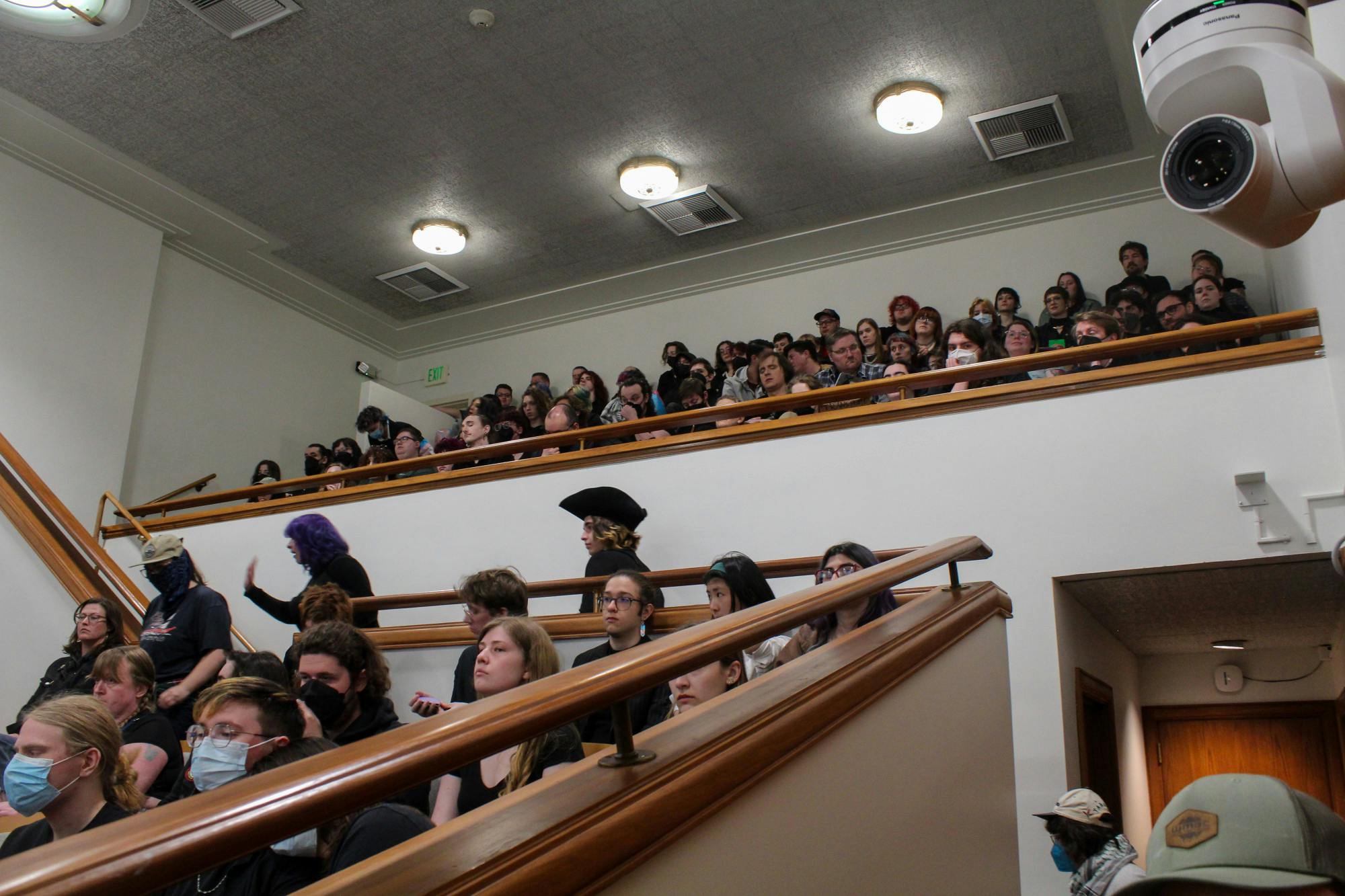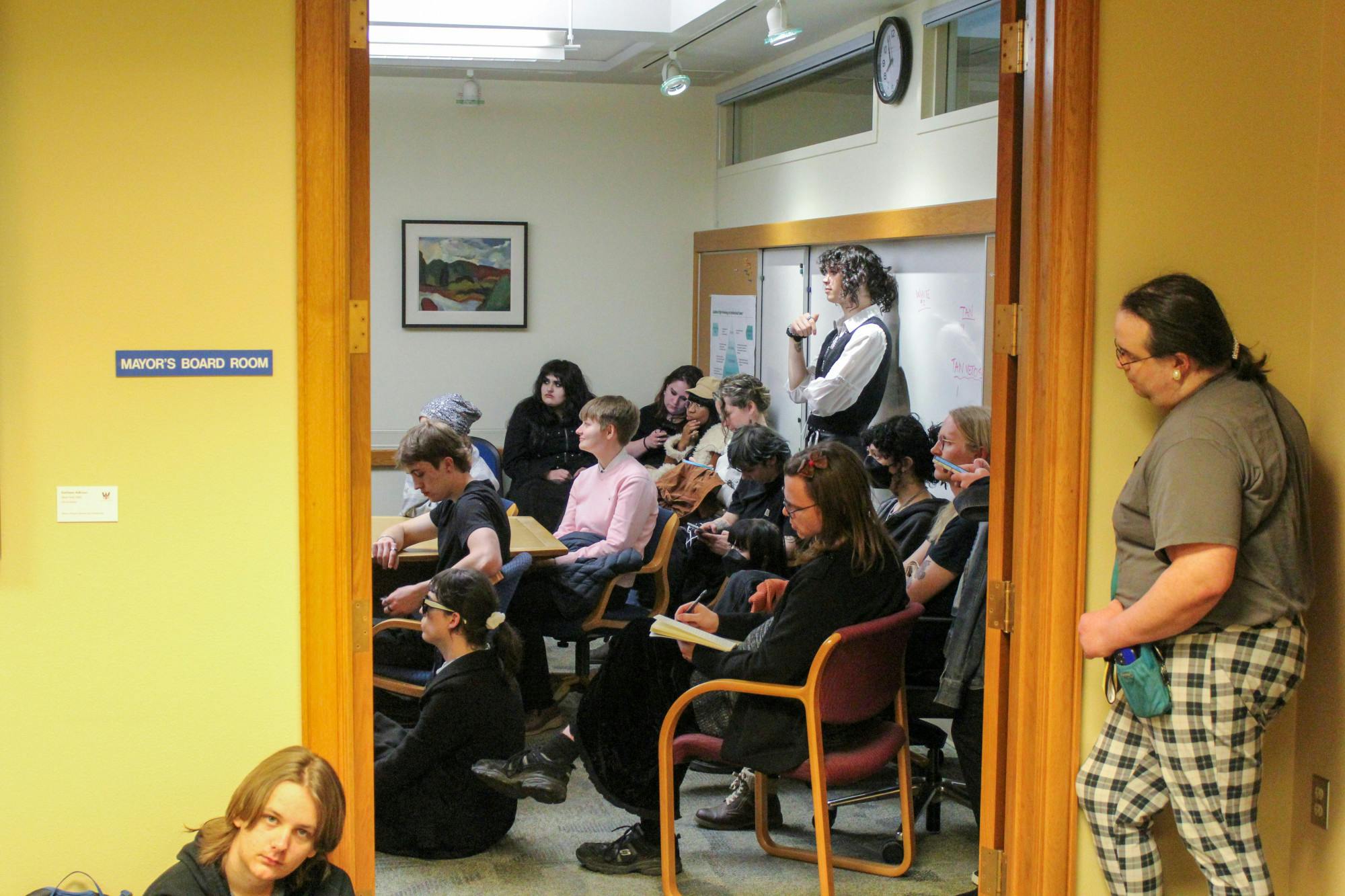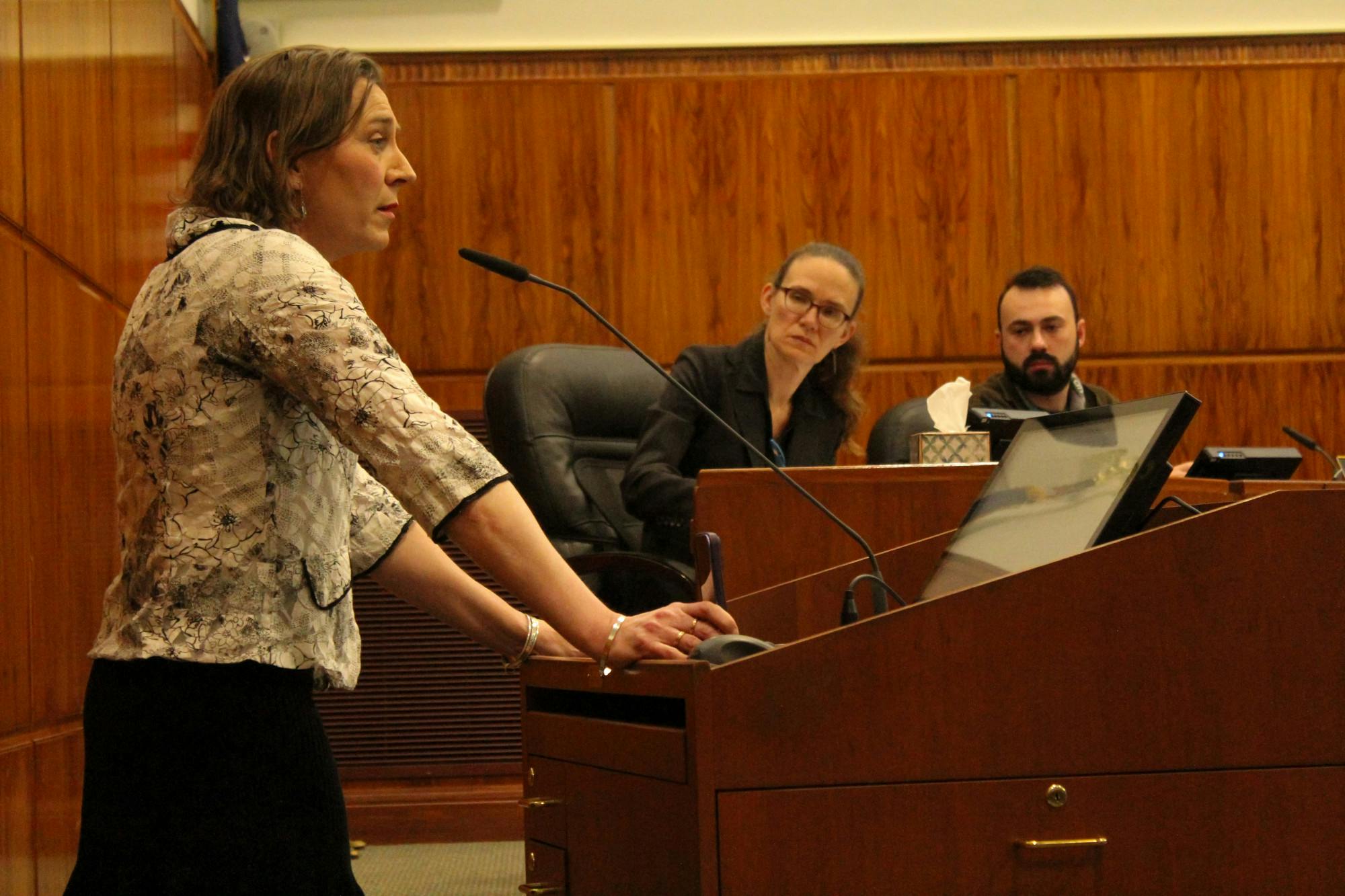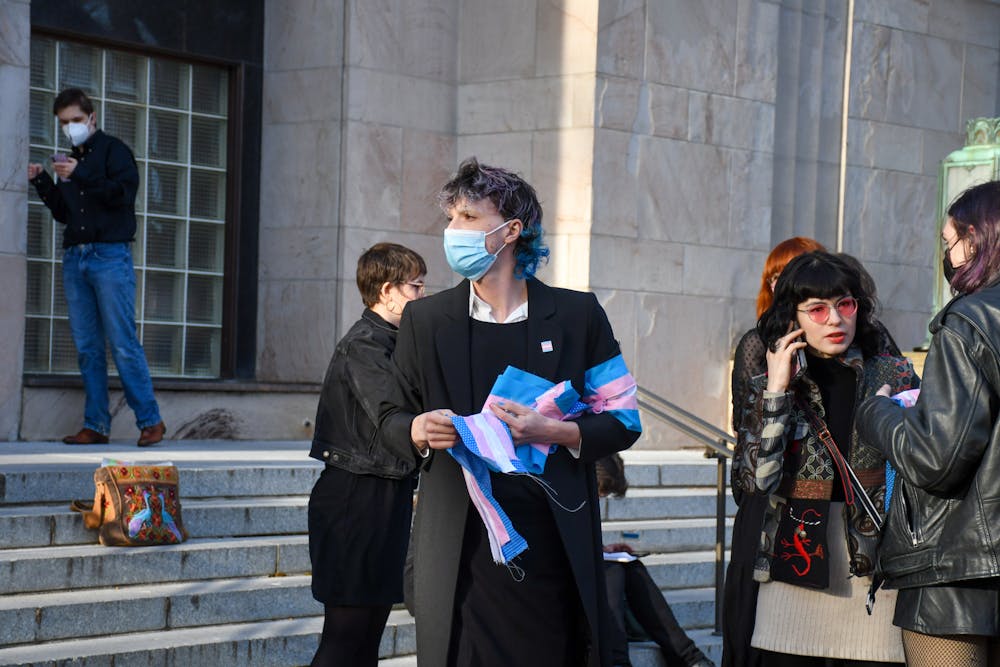As the main chamber of Bellingham City Hall quickly reached capacity at 7 p.m. Monday, April 14, security guided the overflow of attendees to view the meeting via livestream in the mayor’s boardroom.
In both the chamber and the boardroom, transgender community members and allies — dressed in funeral attire — showed up en masse, imploring the city council to pass a resolution declaring Bellingham a transgender sanctuary city.
“This resolution is an opportunity. A beautiful moment in which we can affirm the sanctuary of Bellingham to a people in need,” said Selene Etheredge, who coordinated the mass gathering through the organization Trans Survival.
If passed, the resolution would cement Bellingham as the second official transgender sanctuary city in the state of Washington, alongside Olympia.

The city hall meeting comes in the wake of sweeping discriminatory state and federal actions nationwide. According to the American Civil Liberties Union, there are currently 569 anti-LGBTQ+ bills in circulation across the United States.
Etheredge outlined the roles that a sanctuary city plays in protecting transgender individuals.
“It's imperative that as a sanctuary city, we would have legislation protecting HRT [hormone replacement therapy], gender-affirming care, [and] education of those things,” Etheredge said. “As well as [the protection of] any public display of queer celebration and gathering, including drag shows, gay clubs, literature, dissemination, public viewings of movies, and even the art that we create.”
While addressing the city council, Etheredge continued in saying that this resolution would make any federal crime concerning transgender identity the lowest priority of enforcement for local police – meaning they won’t enforce, actively pursue or investigate violations of federal anti-transgender legislation unless explicitly required by a higher legal body.

The resolution would also prohibit criminalizing people for identifying with their chosen name and gender, allow for the reporting of hate crimes through existing infrastructure — similar to the DD2901 Child Abuse or Domestic Abuse form — and protect providers of gender related healthcare and education, she explained.
As city hall’s consent agenda wrapped up and the period of public commentary opened, over 30 community members spoke to the city council. Although not everyone spoke in regards to the resolution, none of the speakers opposed it.
“For 48 years, I lived as a man,” said Cori Lovejoy in their public comment. “In those 48 years, never once did I give any thought to my physical safety, my civil rights, or my access to healthcare. Now, I have to consider every single one of those things.”
Lovejoy told the city council that she and her roommate, another transgender individual, had received death threats mailed to their home.
These death threats follow the assault of a transgender Bellingham High School student on Oct. 22, 2024, mere blocks away from the school itself.

“Ever since I moved to Bellingham, I’ve felt nothing but safe until lately,” Lovejoy said. “But what’s happening nationally is emboldening this anti-trans movement and the transphobia.”
Bellingham City Council’s next regular meeting is scheduled for April 28 at 7 p.m., although the agenda has yet to be published.
“Passing this resolution would give notice to all transgender individuals living in fear that Bellingham is safer [and] more accepting,” said Etheredge. “On a federal level, the best opposition we can offer is having a stance and making it known.”
Jae Ranney (they/them) is a second-year journalism major and city news reporter for The Front this quarter, having previously worked in campus news. When they're not chasing a lede or hounding you for a quote, they enjoy playing guitar, banjo, and drumming in a few local bands. You can reach them at jaeranney.thefront@gmail.com.






